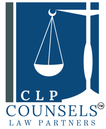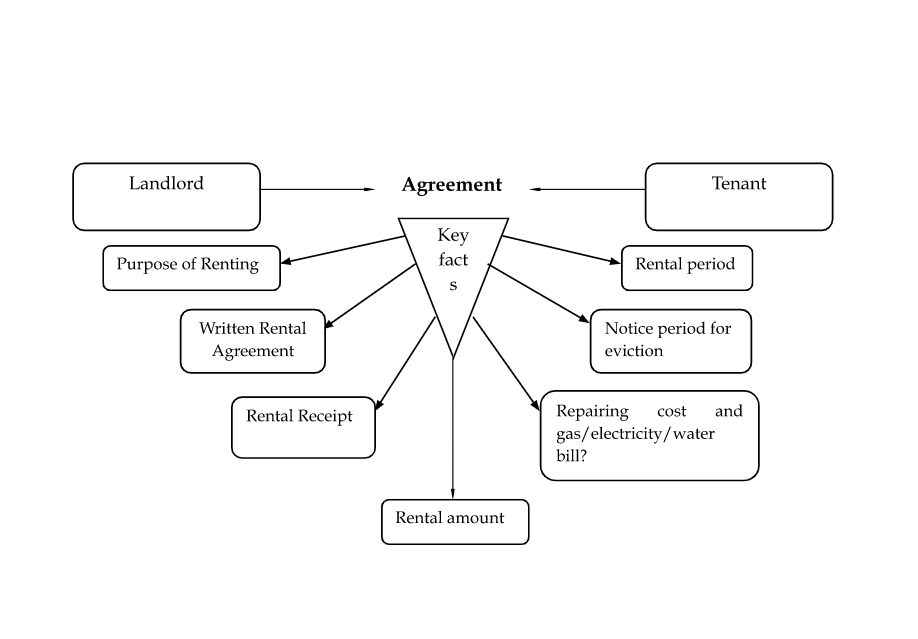Introduction
In Bangladesh, most people dwell as a tenant of other premises and most tenant faces difficulties in coping with the rise in rent every year. However, the enactment of the Rent Control Act 1991 came as a rescue to keep rents under control and reasonable for the tenants. In addition, this act also gives protection in upholding the rights and interests of both landlords and tenants.
This article will give an overview of the legal rules related to renting, the legal meaning of Landlord and tenant, required documents for the rental agreement, power of a controller, rights, and duties of Landowner and tenant, how to serve notice, tax payment of house property, etc. In addition, we also focus on the penalty system, suit filing, and other related matters.
In Bangladesh, most people dwell as a tenant of other premises and most tenant faces difficulties in coping with the rise in rent every year. However, the enactment of the Rent Control Act 1991 came as a rescue to keep rents under control and reasonable for the tenants. In addition, this act also gives protection in upholding the rights and interests of both landlords and tenants.
This article will give an overview of the legal rules related to renting, the legal meaning of Landlord and tenant, required documents for the rental agreement, power of a controller, rights, and duties of Landowner and tenant, how to serve notice, tax payment of house property, etc. In addition, we also focus on the penalty system, suit filing, and other related matters.
Who is the Landlord?
Landlord means any person entitled to receive the rent from a tenant of his premises. He is entitled to receive the rent if the premises were let to a tenant for a fixed term. A landlord can rent his premises for residential, business, and other purposes.
Who is the Tenant?
Tenant means any person who pays rent regularly for his premises and continues his possession for a definite term. A tent can continue its possession after renewing the terms and conditions of the house rent.
What you should know about renting?
Most people are indifferent when it comes to following the rules and regulations of renting premises as a result both tenants and landlords can be deprived of their rights. So, before renting a premise you should be aware of the following common issues as per the law:
- Main purposes of renting premises i.e. if it is for residential, business, or official purposes.
- There should be a written agreement between the landlord and the tenant. Without this, the tenant will be deprived of the benefit he is entitled to get as per law. In our country, most landlords are reluctant to enter into a rental agreement and without any written contract there is a possibility of claiming illegal advantages from the tenant to the landlord and vice versa.
- Most importantly landlords have to provide a rent receipt to their tenant to keep track of the amount paid for the respective month or period
- As per the provision of the Rent Control Act, the landlord cannot increase the rent without any proper cause such as any improvement in the premises or any supply of furniture by the landlord. The amount of rent has to be standard rent.
- The house/premises are to be handed over to the tenant at the time of renting.
- Required documents for the preparation of the rent agreement
- Name and full address of landlord and tenant
- Date of execution of the agreement.
- Passport size photographs and Copy of NID card of landlord and tenant.
- Renting amount and whether it is inclusive of the electricity and water bills.
- Fixed rental period of the premises
- Terms and conditions of renting for example the tenant will follow all the rules set out in the law and will not carry out any illegal activities in the rented property
- Terms as to whether the agreement can be extended for a further period by mutual consent of both landlord and tenant.
- Terms related to the requirement of notice and notice period for eviction.
- The tenant must allow the landlord to enter into rented premises for general checking.
- The tenant will bear the cost of minor repairs.
- The tenant will keep the premises clean and not involve any act causing problems to others.
- The tenant will pay one month’s rent in advance to the landlord.
- Both landlord and tenant have to read and understand the agreement and sign it without any pressure.
Powers and duties of a controller
The government has empowered a controller with some specific powers and duties which are as follows:
- To fix the standard rate of rent.
- He has the power to hear applications made to him by any aggrieved party.
- He has the power to enter rented premises for general inspection.
- The controller will complete the hearing of every application within three months.
- The Controller shall, on an application made to him by a tenant, cause a notice to be served on the landlord requiring him to make any repairs which a landlord is bound to make to the premises let by him or to take any measures for the maintenance of any essential supply including the maintenance of a supply of water or electricity, the maintenance of drainage service and the maintenance of any lift, etc.
- Before exercising any of the power conferred upon the controller, he will give prior notice to the tenant and the landlord through a registered post.
Rights and liabilities of a landlord and tenant:
- Not to increase rent without any cause.
- To collect any improvement cost from the tenant after the property is let out.
- The landlord can collect extra rent from the tenant for the payment of increased tax and toll to the municipality, as it is said by the agreement.
- To provide a rent receipt to the tenant.
- He cannot claim extra premium or salami from tenants.
- However, the landlord can claim a premium if the premises are leased for a long term, not less than twenty years.
- The landlord is bound to pay for the maintenance of supply water, electricity, and sewerage services of the rented property, as per the provision of a written agreement.
- He cannot make any illegal ejectment to the tenant without giving him prior notice.
- The tenant will follow all the rules and regulations set by the Act and will not involve any illegal activities within the rented property.
- The tenant will keep the premises clean.
- The tenant has to pay a one-month advance to the landlord.
- As per the Act, if the landlord refuses to accept rent from any tenant he must deposit such rent within fifteen days by postal authorities on the date of returning the rent.
Illegal eviction of a tenant
As per the provision of this Act, a Landlord cannot evict a tenant without giving prior notice. But a landlord can evict a tenant without giving prior notice under some special circumstances, which are as follows:
- If the tenant has done any act contrary to the provision of the Act.
- If the tenant has done any act contrary to sec 108 of the Transfer of Property Act-1882.
- In the absence of any written contract, if the tenant has sublet any premises without the consent of the landlord.
- The tenant has been guilty of any public nuisance of adjoining or neighbouring premises.
- Where the landlord can show satisfactory cause to the court that the premises are bona fide as required by the landlord.
- If the tenant has been using the premises or allowing the premises to be other for economic purposes.
Notice serving procedure in the absence of any rental contract:
In the case of a rental agreement, the notice period for eviction will be mentioned therein. However, in the absence of a contract, the notice-giving procedure will be regulated by section 106 of the Transfer of Property Act.
- If the renting purpose of immovable property is not residential but agricultural or manufacturing, if it is terminable year to year then, six months’ notice will be served to expire with the end of a year of tenancy.
- In the case of residential purposes, if it is terminable month to month then fifteen days’ notice will be served to expire with the end of a month of tenancy
- Every notice must be in writing. It will be signed by both the landlord and the tenant. It will be delivered by post or personally.
Payment of taxes and duties for house property
Generally, the landlord will pay the increased amount of taxes. As per the provision of the written agreement, the tenant will be allowed to pay the increased amount of taxes to the landlord by mutual consent. However, as per the provision of the Income Tax Ordinance 1984, some rules regarding payment of taxes for house property are as follows:
- where the property is mortgaged tax will be paid by the mortgagor.
- if the property is held under trust tax will be paid either by the trustee or beneficiary.
- if the property is leased for a long time, the lessee is to pay tax.
- where the owner of the house property becomes insolvent, the official receiver will be liable to pay tax.
- where the house is owned jointly and the share is identifiable, each co-owner will pay taxes for their share.
Condition for tax assessment:
As per the provision of Income Tax Ordinance-1984, a house property needs to fulfil the following conditions for tax assessment:
- For tax assessment, the assessor must be the legal owner of the house.
- Income must come from the house property and its adjacent premises.
- For assessment, the Annual value of the house property is to be determined.
Computing annual value from house property:
Section 24 of the Income Tax Ordinance 1984 provides that tax on house property will be charged based on the Annual value of the house. In determining the Annual Value of the house, two things will be considered i.e.-
[ 1] The sum of the estimated annual rent
[2] The sum of actual annual rent.
The higher one.
So, AV= Estimated annual value or Actual rental value, whichever is higher
Tax deduction of house property:
As per the provision of the Income Tax Ordinance, 1984 following expenditure will be deducted from the tax computing of house property:
- A fixed amount of one-fourth of the annual value of the house property will be deducted as a repair charge from tax calculation.
- Paying of insurance premium for the house property is an allowable expenditure.
- Paying of land revenue will be an allowable expenditure.
- Tax payable to the municipality will be considered an item of allowable expenditure.
- If the house property is mortgaged, mortgaged interest will be considered an item of allowable expenditure.
- Interest on borrowed money to acquire, repair, and construct residential house property will be deducted up to 20 lakh taka.
- If the house property is vacant for a long time and it becomes lost, the vacancy allowance will be deducted from the computing tax.
House property Exempted from tax calculation:
- Property income used for religious or charitable institutions will be exempted from tax calculation.
- Income of the property used for agricultural purposes by the owner.
- Income from the newly constructed house is as follows for ten years.
- Using of house property for business purposes, if the income of the business is assessable separately under the head of “Income from Business”
Penalty Provisions for violating the legal obligations under the Act
As per the provision of the Rent Control Act, there is a penalty system for violating rules which are as follows:
Penalty for recovering excess rent: If any person receives extra rent from the tenant, for the first time he will find an amount twice over the standard rent. And on every subsequent occasion, he will fine three times in such excess. Moreover, if anyone receives extra salami, premium, or security he will be fined two thousand takas on the first occasion. But every subsequent occasion will fine be extending to five thousand takas. In addition, if anyone receives more than one month’s rent in advance without out written consent of the controller will be fined an amount twice above one month’s rent.
Penalty for disturbance of easement rights: Making willful disturbance of easements to others annexed to such premises is a violation of the Act. If anyone does such a thing, the aggrieved party can file a complaint to the controller. The liable one has to pay five hundred takas as a fine on his first occasion. And on every subsequent occasion, the fine may extend to one thousand takas.
Penalty for giving incorrect name or address of the landlord: A tenant who willfully gives an incorrect name and address of the landlord will be liable to a fine extended to five hundred takas.
Penalty for tenant’s failure to explain the possession of premises: Every tenant who fails to make over vacant possession will be liable to a fine extended to ten times the standard rent of the premises.
Penalty for failure to grant receipts: If a landlord fails to deliver to a tenant a written rent receipt will be liable to a fine twice the amount recovered.
Filing of complaints: As per the provision of the Act, an aggrieved person has to file a complaint in written form to the controller. However, after inquiring about every complaint, the controller shall impose the punishment referred to in said section. The fine shall be paid by the person in a prescribed manner within thirty days from the date of the order imposing it. Otherwise, it will be recoverable as a public demand under the Public Demands Recovery Act.
Provision of Appeal: Any aggrieved person by the order of the controller, may file an appeal to the district judge within thirty days from the date of the order. The decision of the district judge and subject to the said decision order of the controller shall be final.
Legal Advice regarding Rights and Liabilities of Landlord and Tenant by CLP
The Barristers, Advocates, and lawyers at CLP in Gulshan, Dhaka, Bangladesh are highly experienced at assisting clients through the entire process and legal provisions relating to any dispute between landlord and tenant in Bangladesh.
For any queries or legal assistance, please reach us at E-mail: info@counselslaw.com
Phone:+8801700920980. +8801947470606. Address: Flat No. C-2, House-4/A/1 (3rd Floor), Road No-2, Gulshan-1 Dhaka.
FAQ
Q: What is the Rent Control Act 1991?
A: The Rent Control Act 1991 regulates rents and protects the rights and interests of both landlords and tenants in Bangladesh.
Q: Who is considered a landlord under this act?
A: A landlord is any person entitled to receive rent from a tenant of their premises, whether for residential, business, or other purposes.
Q: What defines a tenant according to the Rent Control Act?
A: A tenant is any person who pays rent regularly for their premises and continues possession for a definite term, with possible renewal of terms.
Q: What should be included in a rental agreement?
A: A rental agreement should include the names and addresses of both parties, execution date, rent amount, rental period, terms and conditions, notice period for eviction, and obligations of both landlord and tenant.
Q: What are the powers of a controller under the Rent Control Act?
A: A controller can fix standard rent rates, hear grievances, inspect premises, ensure maintenance, and serve notices for repairs.
Q: What are the rights and duties of a landlord?
A: A landlord must not increase rent without cause, provide rent receipts, and maintain utilities. They cannot evict tenants without notice or demand illegal premiums.
Q: What are the rights and duties of a tenant?
A: A tenant must pay rent on time, keep premises clean, allow landlord inspections, and follow the rules set by the Act. They also must pay one month’s rent in advance.
Q: How can a landlord legally evict a tenant?
A: A landlord can evict a tenant without notice if the tenant violates the Act, sublets without consent, causes a nuisance, or uses the premises for illegal activities.
Q: What is the procedure for serving an eviction notice?
A: Without a rental agreement, the notice period is regulated by the Transfer of Property Act: six months for agricultural/manufacturing purposes or fifteen days for residential purposes.
Q: Who pays property taxes under the Income Tax Ordinance 1984?
A: Property taxes are generally paid by the landlord, but the tenant can pay increased taxes by mutual consent. Specific rules apply for mortgaged properties, trusts, long-term leases, insolvencies, and co-owned properties.
Q: What penalties exist for violating the Rent Control Act?
A: Penalties include fines for excess rent, disturbance of easement rights, incorrect landlord information, failure to vacate, and not providing rent receipts.
Q: How can one appeal a controller’s decision?
A: An aggrieved person can appeal to the district judge within thirty days of the controller’s order. The judge’s decision is final.
Q: Where can I seek legal advice regarding landlord-tenant disputes?
A: You can contact the barristers, advocates, and lawyers at CLP in Gulshan, Dhaka, Bangladesh, via email at info@counselslaw.com or phone at +8801700920980, +8801947470606.



